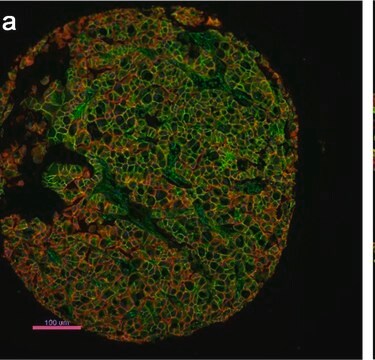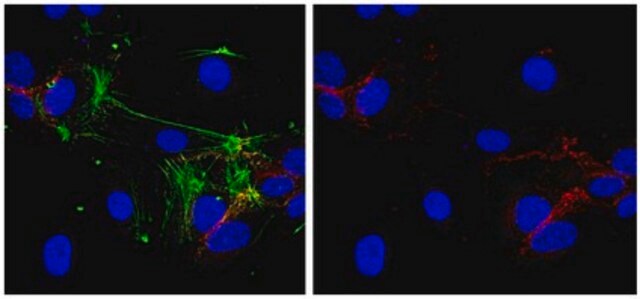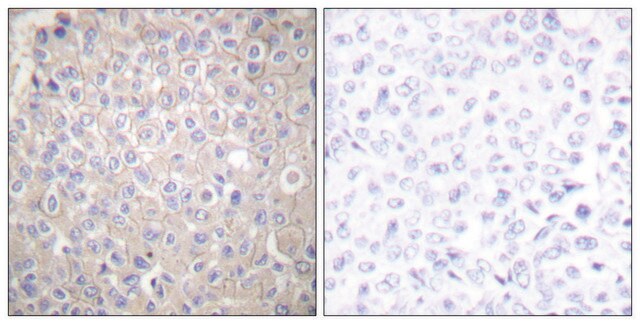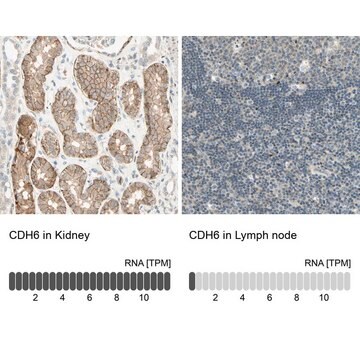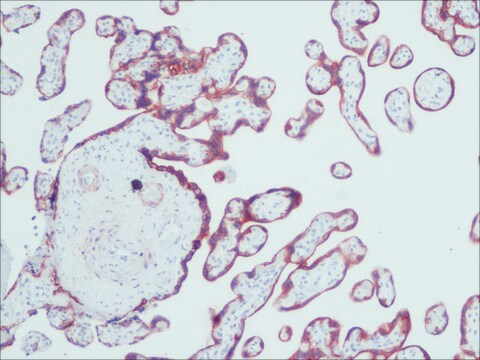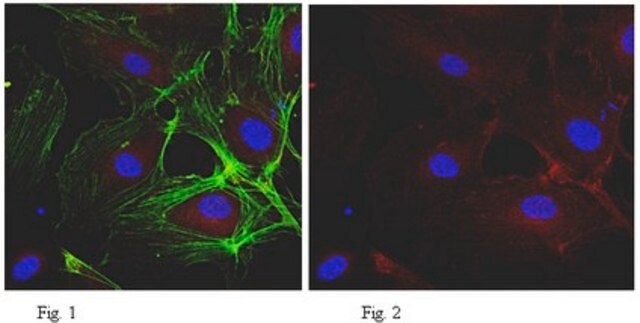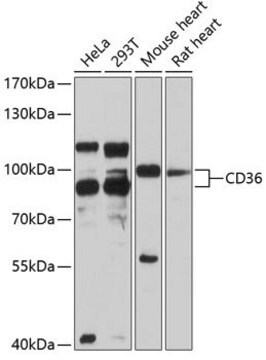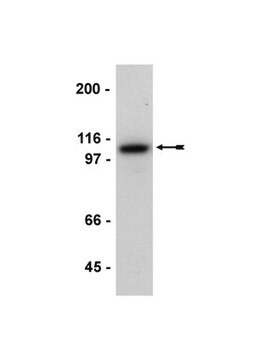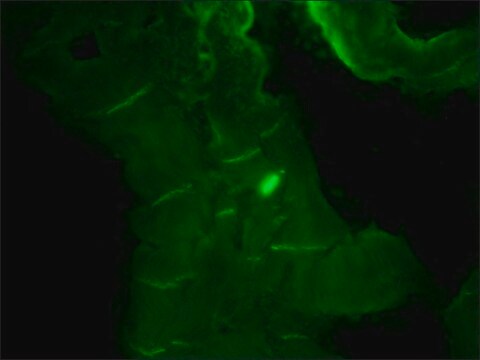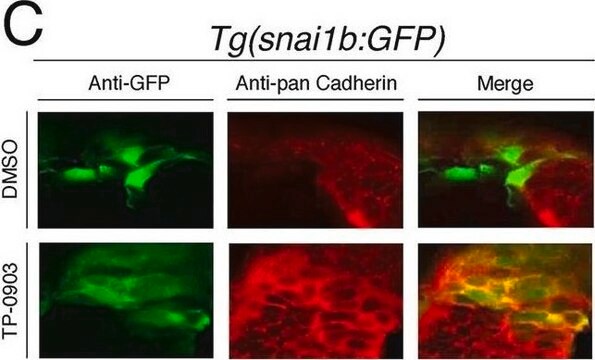推薦產品
生物源
mouse
品質等級
抗體表格
purified from hybridoma cell culture
抗體產品種類
primary antibodies
無性繁殖
CH-19, monoclonal
形狀
buffered aqueous solution
分子量
~135 kDa
物種活性
guinea pig, canine, frog, bovine, human, cat, monkey, rabbit, mouse, ferret, snake, hamster, chicken, Psammomys (sand rat), rat
濃度
~1.0 mg/mL
技術
immunoblotting: 0.125-0.25 μg/mL using HeLa cell extract
immunofluorescence: 5-10 μg/mL using HeLa cells
immunohistochemistry: suitable
同型
IgG1
運輸包裝
dry ice
儲存溫度
−20°C
目標翻譯後修改
unmodified
基因資訊
human ... CDH1(999)
一般說明
Anti-Pan-Cadherin antibody, Mouse monoclonal (mouse IgG1 isotype) is derived from the CH-19 hybridoma produced by the fusion of mouse myeloma cells and splenocytes from a BALB/c mouse immunized with the synthetic peptide.
N-cadherin, also known as cadherin-2 (CDH2) or neural cadherin (NCAD) is mapped to human chromosome 18q12.1. N-cadherin has ectodomains comprising of 110 amino acidsand is called the extracellular cadherin (EC) domain. EC domains are critical for the adhesion function of N-cadherin.
特異性
Monoclonal Anti-Pan-Cadherin recognizes Cadherin from human, mouse, monkey, bovine, chicken, rat, ferret, canine, rabbit, pig, guinea pig, hamster, cat, frog, snake and psammomys origin. Monoclonal Anti Pan-Cadherin is reactive against a highly conserved sequence at the cytoplasmic C-terminal of N-Cadherin protein.
免疫原
synthetic peptide corresponding to the C-terminus of chicken N-Cadherin with an extra N-terminal lysine residue coupled with KLH.
應用
Anti-Pan-Cadherin antibody, Mouse monoclonal may be used in:
- immunoblotting
- immunofluorescence
- immunohistochemistry
生化/生理作用
N-cadherin plays a key role in the neurulation, which involves transition of neural plate into neural tube. It is present in the synaptic membrane and dimerises upon synaptic induction and mediates synaptic activity. N-cadherin mediates cell−cell adhesion in retina but favors tumor progression in retinoblastoma. It is upregulated in carcinomas and is critical for cell invasion. Irregular distribution of N-cadherin is implicated in dilated cardiomyopathy. Mutations in the CHD2 gene may probably contribute to obsessive-compulsive disorder (OCD) and Tourette disorder (TD).
外觀
Solution in 0.01 M phosphate buffered saline, pH 7.4, containing 15 mM sodium azide.
儲存和穩定性
Store at –20 °C. For continuous use, store at 2–8 °C for up to one month. For extended storage, freeze in working aliquots. Repeated freezing and thawing is not recommended. If slight turbidity occurs upon prolonged storage, clarify the solution by centrifugation before use. Working dilution samples should be discarded if not used within 12 hours.
免責聲明
Unless otherwise stated in our catalog or other company documentation accompanying the product(s), our products are intended for research use only and are not to be used for any other purpose, which includes but is not limited to, unauthorized commercial uses, in vitro diagnostic uses, ex vivo or in vivo therapeutic uses or any type of consumption or application to humans or animals.
未找到適合的產品?
試用我們的產品選擇工具.
儲存類別代碼
10 - Combustible liquids
閃點(°F)
Not applicable
閃點(°C)
Not applicable
Structure and biochemistry of cadherins and catenins
Shapiro L and Weis WI
Cold Spring Harbor Perspectives in Biology, a003053-a003053 (2009)
Structure and function of the N-cadherin/catenin complex in retinoblastoma
Van A, et al.
Investigative Ophthalmology & Visual Science, 43(3), 595-602 (2002)
Apoptosis-related factors p53, bcl-2 and the defects of force transmission in dilated cardiomyopathy
Tsipis A , et al.
Pathology Research and Practice, 206(9), 625-630 (2010)
G Berx et al.
Breast cancer research : BCR, 3(5), 289-293 (2001-10-13)
E-cadherin is a cell-cell adhesion protein fulfilling a prominent role in epithelial differentiation. Data from model systems suggest that E-cadherin is a potent invasion/tumor suppressor of breast cancer. Consistent with this role in breast cancer progression, partial or complete loss
N-cadherin-mediated cell-cell adhesion promotes cell migration in a three-dimensional matrix
Shih W and Yamada S
Journal of Cell Science, 43(3), jcs-103861 (2012)
我們的科學家團隊在所有研究領域都有豐富的經驗,包括生命科學、材料科學、化學合成、色譜、分析等.
聯絡技術服務